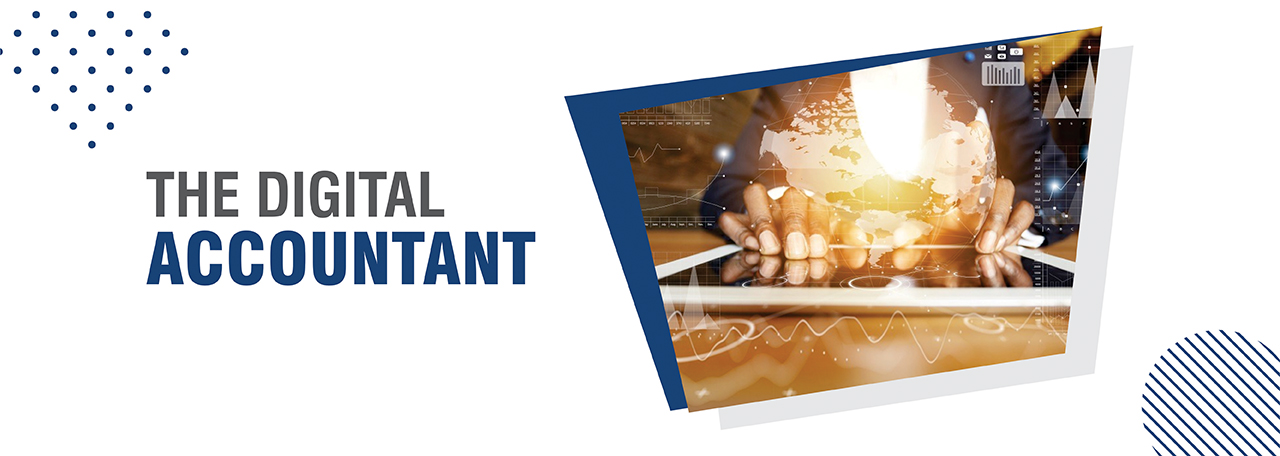Association of Certified Digital Accounting Professionals (ACDAP) has realised the importance of the Digital Accountant before the launch of government’s scheme in relation to Making Tax Digital (MTD); ACDAP took initiative in 2010 by keeping in view the future demand of VAT / HMRC. Here, the ACDAP is presenting you a full snapshot through its structured and customized educational programme to become a Digital Accountant, emphasis on the customers and their digital requirements. ACDAP qualifications are internationally recognised, meeting the needs of employers, government and learners, both now and in the future for the purpose of the digitisation of accounts. ACDAP qualifications equip learners with real work scenarios for all accounting practices including digital accountancy & the MTD.
When you are a Digital Accountant, you are not going back. Sage, QuickBooks, SAP, SAPA, SAGE Compliance, Excel, Xero and Sage One will open up new ways while using cloud accounting solutions.
ACDAP mission is to assist you in growing your accounting business. ACDAP is very pleased to explain to you about what being or becoming a digital accountant, it covers a variety of business-oriented perspectives. Digital accounting include:
Computerised Accounting
Computerised accounting systems enable accountants to set up income and expense accounts like rental or sales income, salaries, advertising expenses, and material costs. Computerised accounting can be used to manage bank accounts, pay bills, and prepare budgets. Depending upon the program, some accounting systems also allow you to prepare tax documents, handle payroll, and manage project costing. ACDAP qualifications cover computerised accounting and provide expertise on a wide range of accounting software including Sage, QuickBooks, SAP, SAPA, SAGE Compliance, Excel, Xero etc.
Cloud Accounting
Cloud accounting software is similar to traditional, on-premises, or self-install accounting software. All application functions are performed off-site, not on the users’ desktop. In cloud computing, users access software applications remotely through the Internet or other network via a cloud application service provider. Using cloud accounting software exempts the business from having to install and maintain software on individual desktop computers. Cloud accounting solutions allow employees in other departments, remote or branch offices to access the same data and the same version of the software.
Cloud computing has an intense impact on the accounting sector also, in other words, it is complete shift from the current scenario.
ACDAP qualification include practical working on clouds compatible accounting software like Sage, QuickBooks, SAP, SAPA, SAGE Compliance, Excel, Xero and Sage One, these software have a variety of functionalities beyond/including the bookkeeping solutions. Cloud-based solutions are similar to small business platforms, provides with an all-in-one solution. A large number of applications connect to the main bookkeeping solution concentrating on workflows like data entry, project management, reports etc.
Benefits for Accountants
It has larger benefits for accountants including:
- Accountants are trusted advisors
- No burden of the compliance jobs such as year-end accounts and tax returns.
- Accountants now have sufficient time to focus on developing more innovative services for clients like providing insight and advice
- Clients can observe the new role (trusted advisors) having larger worth to them, this will result positively in the profits.
About the Mindset
The digital accountant mindset needs to focus on offering services that are transparent, agile, responsive, and using relevant technology. Central to this is basing your services around four fundamental aspects:
- Clear
- Fluid
- Fast
- Digital
Cloud accounting software helps with each of the above four fundamental aspects, asking yourself the following questions:
- Who are your top 3 biggest competitors and what do they do better than you?
- How long does it take to respond to customers – regardless of how they get in touch?
- How easy is it for clients to access critical information, from anywhere at any time?
- What are you going to stop doing, start doing and continue to do this year?
- When was the last time you actually changed anything meaningful, and was it easy?






















